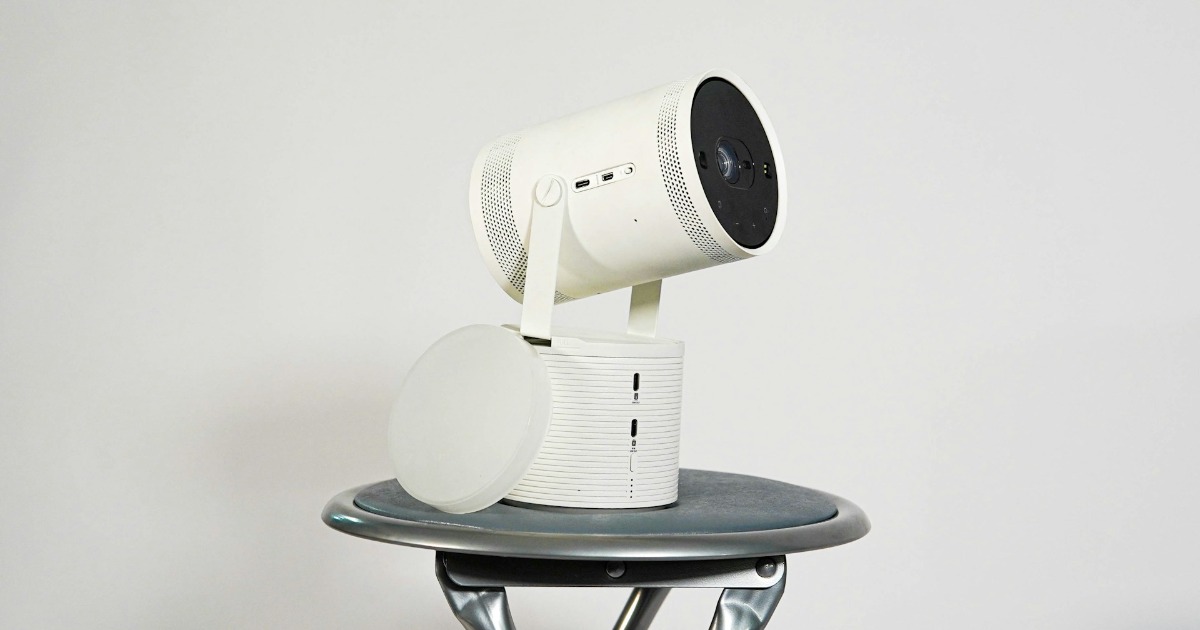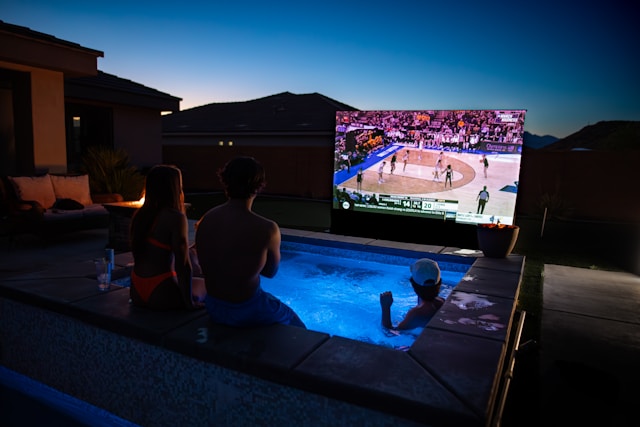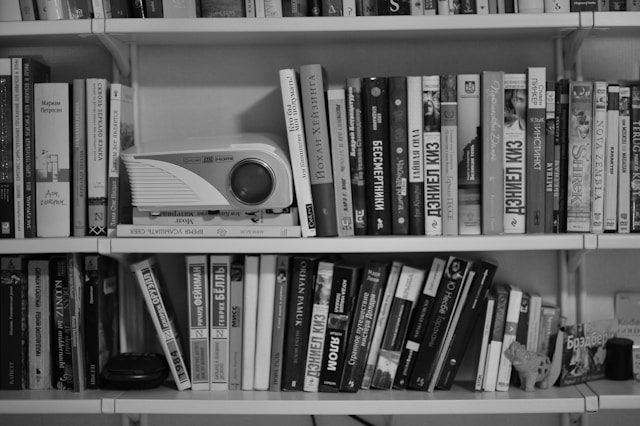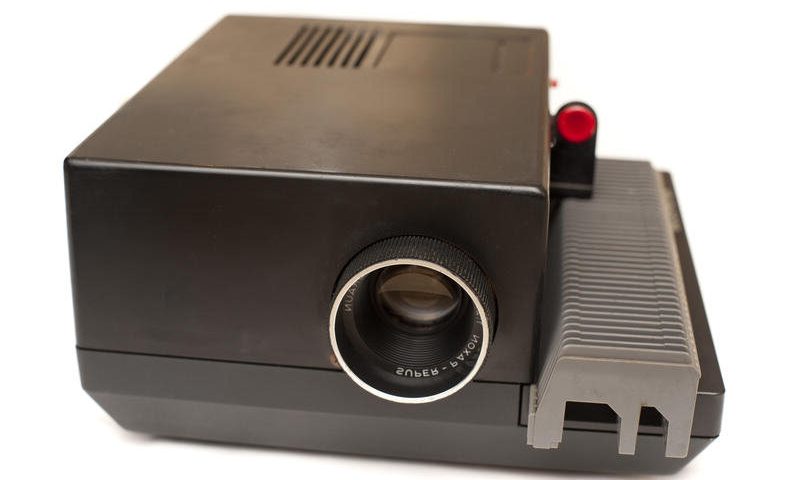Are Projectors Bad For Your Eyes? 5 Useful Tips You Need To Know
- 26 Jan 2025 03:21
- 261

People may also use projectors to build a home theater and view movies in their own homes with a theater-like experience. It's a lot more enjoyable than gazing at a phone screen. However, due to the bright light that could potentially harm your eyes, some people are concerned about how safe a projector is. Only when you use a projector in a manner that might cause retinal damage is it damaging to your eyes. When you gaze straight into a projector's lens, the brightness of the light is so intense that it may harm your eyes. Continue reading to discover more about "are projectors bad for your eyes" and how to use safety precautions to avoid eye strain and injury.
Are Projectors Bad For Your Eyes?

Are projectors bad for your eyes? Regular projector watching isn't hazardous; however, staring straight into the projector's light may be harmful. Because the light that drives your projector generates light at roughly 6 kW, this is enough to harm your eyes. Even a few seconds of staring into an operating projector lens is enough to strain your eyes, and long-term exposure will undoubtedly harm them. A TV or smartphone screen, for example, has a brightness of roughly 200-300 nits, but a typical projector has a brightness of 500-1000 nits. Projector light can only be dangerous if you look directly into the projection lens. So, how does this take place? How is it possible that the light from the projector is harmful yet the light reflected off the screen is not? When a projector uses a screen to reflect the picture into the viewer's eyes, this is what you see. The screen will absorb a large portion of the light that strikes it. It is both a benefit and a drawback. It's good in the sense that it will not harm your eyes. Yet, it is inconvenient because this light absorption might degrade the picture quality. Dealing with a less-than-stellar projector picture is harmful to your eyes. The material and color of your projector screen will significantly impact its capacity to reflect light. So, gray is the most often suggested screen color. The harmful wavelengths of light (UV and IR) are filtered by this mechanism regardless of how much light the screen absorbs. They're also filtered by the distance between the lens and the screen and then returned to your eyes. These elements make it safe to view projector displays as long as you don't gaze directly into the projector's barrel. The projector light isn't dangerous when used daily.
Does Projector Have Blue Light?

Yes, projectors emit blue light. Blue light is more powerful and may cause more significant retinal damage. It's also one of the brightest types of light, and it causes more eye strain than other hues. Blue light is dangerous because it contains a wavelength of light that may penetrate and damage the retina. However, you won't get the full impact of the Blue Light if you use a projector. Before hitting your eyes, the projection bounces off a wall or a projection screen. The wall or projection screen may absorb some blue light in this situation. Blue light exposure on a projector is somewhat lower than on a TV, laptop, or smartphone screen.
How Can Projector Light Cause Eye Damage?

There is a danger of eye damage while using projectors. However, the only way projector light may injure your eyes is to gaze straight into it. All of the potentially harmful effects have disappeared since the radiation and UV must bounce off the wall for us to see it.
How to Protect Your Eyes when Using a Projector?

There are several simple precautions you can take to prevent potential harm to your eyes. You should avoid gazing directly at the projector light at all costs. You may find more ideas to help you get the most out of your projector without harming your eyes below. Use a projector as directed: It's critical to adhere to the manufacturer's directions to the letter. Misuse may damage your eyes. Protect your eyes while working on your projector: If you need to remove the cover for maintenance, turn everything off first. If not handled cautiously, the light will be pretty bright and may cause harm. Use a laser projector instead of a standard projector: Laser projectors are less potent than ordinary projectors. While the word may conjure up images of hyper-red destructive beams, laser projectors function at a lower power level. Blue light glasses: Since we live in a digital world saturated with displays, blue light glasses may be advantageous. These will shield your eyes from the damaging blue light. Take a rest: Too much time staring at a screen may cause eye strain and damage. If you suffer from eye strain, make sure you take regular pauses.
FAQs
1. Do projectors cause eye strain?
You may have eye strain caused by prolonged exposure to blue light. Fortunately, using a projector will help limit your exposure to blue light, thanks to the reflection of direct light. In addition, if you spend more than four hours a day staring at a projector screen, you might consider using specific eye safety techniques.
2. Are projectors better for your eyes than a screen?
Yes, projector displays are healthier for your eyes than traditional screens. The ability of projectors to display substantially bigger pictures reduces the strain on your eyes. Furthermore, projectors reflect light, while televisions and computers emit it.
3. Are projector lights safe?
As long as you do not purposefully gaze into the beams, the individual rays seem safe for short, incidental eye exposure.
4. Can a projector cause blindness?
Opening the projector while it is running without sufficient eye protection might cause temporary or permanent damage to your retina. The light is not filtered and UV rays constantly leak; it may cause eye burn and temporary blindness.
5. Are laser projectors bad for your eyes?
Illegal laser rays with wavelengths between 0.3 and 1.3 microns may harm the retina just by gazing at the hazy spot on a wall or screen. How do laser projectors operate in practice?
6. Are our projector screens toxic?
The machine's metal and plastic components may melt due to the extreme heat created by overhead projectors, releasing poisonous compounds into the air via the ventilation apertures. It might harm you or others in the area.
Conclusion
People often ask, "are projectors bad for your eyes." The answer depends on how you want to use it. When you utilize a projector properly, its light isn't dangerous. However, gazing straight into a projector lens while operating is not good. There are some methods for reducing eye strain and adequately using your projector. If you follow the manufacturer's instructions, you should be alright. In addition, parents or guardians should use extreme caution when allowing children to be near an operating projector. We hope this post has provided you with the best answer. It's our pleasure to listen to your opinion about this topic. Feel free to leave your sharings in the box below!
